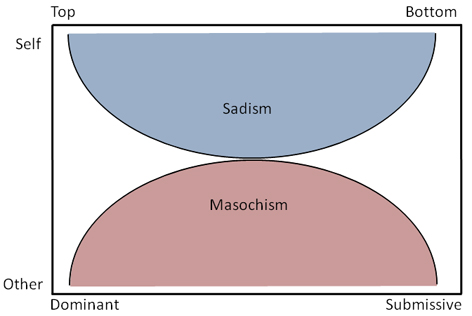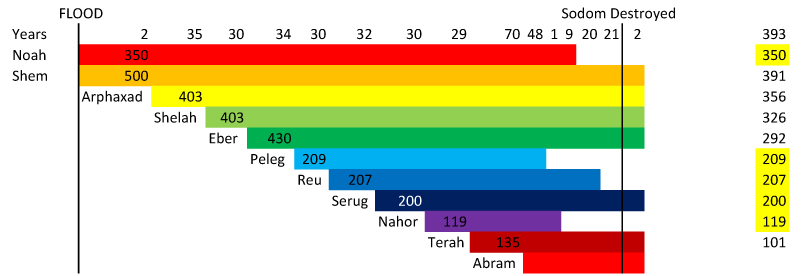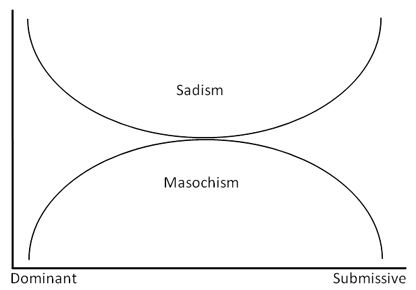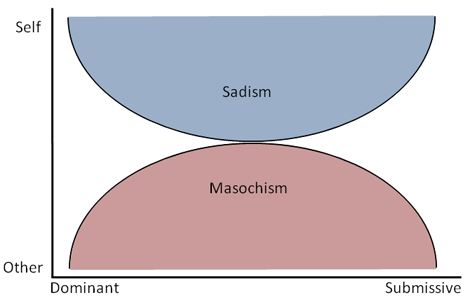I want to continue considering the eternal gospel the angel flying directly overhead “evangelized” (εὐαγγελίσαι, a form of εὐαγγελίζω)[1] in its context. It is one of three messages by three different angels: one “evangelized,” another declared (λέγων, a form of λέγω),[2] and another declared (λέγων, a form of λέγω) in a loud voice.
|
Three Angels |
||
| Then I saw another angel flying directly overhead, and he had an eternal gospel (εὐαγγέλιον)[3] to proclaim (εὐαγγελίσαι, a form of εὐαγγελίζω) to those who live on the earth – to every nation, tribe, language, and people. He declared in a loud voice:
Revelation 14:6, 7a (NET) |
A second angel followed the first, declaring (λέγων, a form of λέγω):
Revelation 14:8a (NET) |
A third angel followed the first two, declaring (λέγων, a form of λέγω) in a loud voice:
Revelation 14:9a (NET) |
| “Fear God and give him glory, because the hour of his judgment (ἡ ὥρα τῆς κρίσεως αὐτοῦ) has arrived, and worship the one who made heaven and earth, the sea and the springs of water!”
Revelation 14:7b (NET) |
“Fallen, fallen is Babylon the great city! She made all the nations drink of the wine of her immoral (πορνείας, a form of πορνεία)[4] passion.”
Revelation 14:8b (NET) |
“If anyone worships the beast and his image, and takes the mark on his forehead or his hand, that person will also drink of the wine of God’s anger that has been mixed undiluted in the cup of his wrath, and he will be tortured with fire and sulfur in front of the holy angels and in front of the Lamb. And the smoke from their torture will go up forever and ever, and those who worship the beast and his image will have no rest day or night, along with anyone who receives the mark of his name.”
Revelation 14:9b-11 (NET) |
| This requires the steadfast endurance of the saints – those who obey God’s commandments and hold to their faith in Jesus.
Revelation 14:12 (NET) |
||
At first I included the final statement with the declaration of the third angel only. Then I realized that the eternal gospel the first angel “evangelized” was not exactly “Believe in the Lord Jesus Christ before you die or burn in hell for all eternity.” Nor was it 1 Corinthians 15:1-8. In fact, it didn’t mention Jesus at all. It occurred to me that seeing and hearing an angel evangelize an eternal gospel like this might also require some steadfast endurance of those who hold to their faith in Jesus (Galatians 1:8 NET).
But even if we (or an angel from heaven) should preach a gospel contrary to the one we preached to you, let him be condemned to hell (ἀνάθεμα)![5]
I assumed that the fall of Babylon might require the same endurance for reasons that were not yet clear. And at present I don’t know whether—those who obey God’s commandments and hold to their faith in Jesus—define the word saints or qualify which saints are under consideration here. I’ll consider the torture of those who worship the beast in its own essay.
I related the two judgments to the three angels like this:
|
Three Angels |
||
| Then I saw another angel flying directly overhead…
Revelation 14:6, 7 (NET) |
A second angel followed the first…
Revelation 14:8 (NET) |
A third angel followed the first two…
Revelation 14:9-11 (NET) |
| Then I looked, and a white cloud appeared, and seated on the cloud was one like a son of man! He had a golden crown on his head and a sharp sickle in his hand.
Revelation 14:14 (NET) |
Then another angel came out of the temple in heaven, and he too had a sharp sickle.
Revelation 14:17 (NET) |
|
| Then another angel came out of the temple, shouting in a loud voice to the one seated on the cloud, “Use your sickle and start to reap, because the time to reap has come, since the earth’s harvest is ripe!”
Revelation 14:15 (NET) |
Another angel, who was in charge of the fire, came from the altar and called in a loud voice to the angel who had the sharp sickle, “Use your sharp sickle and gather the clusters of grapes off the vine of the earth, because its grapes are now ripe.”
Revelation 14:18 (NET) |
|
| So the one seated on the cloud swung his sickle over the earth, and the earth was reaped.
Revelation 14:16 (NET) |
So the angel swung his sickle over the earth and gathered the grapes from the vineyard of the earth and tossed them into the great winepress of the wrath of God. Then the winepress was stomped outside the city, and blood poured out of the winepress up to the height of horses’ bridles for a distance of almost two hundred miles.
Revelation 14:19, 20 (NET) |
|
Despite everything I’ve been through I wanted to relate the outcome of the two judgments to the messages of the three angels like this:
| Then I saw another angel flying directly overhead, and he had an eternal gospel (εὐαγγέλιον) to proclaim (εὐαγγελίσαι, a form of εὐαγγελίζω) to those who live on the earth – to every nation, tribe, language, and people. He declared in a loud voice: “Fear God and give him glory, because the hour of his judgment (ἡ ὥρα τῆς κρίσεως αὐτοῦ) has arrived, and worship the one who made heaven and earth, the sea and the springs of water!”
Revelation 14:6, 7 (NET) |
A second angel followed the first, declaring (λέγων, a form of λέγω): “Fallen, fallen is Babylon the great city! She made all the nations drink of the wine of her immoral (πορνείας, a form of πορνεία) passion.”
Revelation 14:8 (NET)
|
A third angel followed the first two, declaring (λέγων, a form of λέγω) in a loud voice: “If anyone worships the beast and his image, and takes the mark on his forehead or his hand, that person will also drink of the wine of God’s anger that has been mixed undiluted in the cup of his wrath, and he will be tortured with fire and sulfur in front of the holy angels and in front of the Lamb. And the smoke from their torture will go up forever and ever, and those who worship the beast and his image will have no rest day or night, along with anyone who receives the mark of his name.”
Revelation 14:9-11 (NET) |
| They sang the song of Moses the servant of God and the song of the Lamb: “Great and astounding are your deeds, Lord God, the All-Powerful! Just and true are your ways, King over the nations!”
Revelation 15:3 (NET) |
…they blasphemed the name of God…and they would not repent and give him glory.
Revelation 16:9b (NET) |
|
| “Who will not fear you, O Lord, and glorify your name, because you alone are holy? All nations will come and worship before you for your righteous acts have been revealed.”
Revelation 15:4 (NET) |
…they blasphemed God because of the plague of hail, since it was so horrendous.
Revelation 16:21b (NET) |
They blasphemed the God of heaven because of their sufferings and because of their sores, but nevertheless they still refused to repent of their deeds.
Revelation 16:11 (NET) |
| Then I looked, and a white cloud appeared, and seated on the cloud was one like a son of man! He had a golden crown on his head and a sharp sickle in his hand. Then another angel came out of the temple, shouting in a loud voice to the one seated on the cloud, “Use your sickle and start to reap, because the time to reap has come, since the earth’s harvest is ripe!” So the one seated on the cloud swung his sickle over the earth, and the earth was reaped.
Revelation 14:14-16 (NET) |
Then another angel came out of the temple in heaven, and he too had a sharp sickle. Another angel, who was in charge of the fire, came from the altar and called in a loud voice to the angel who had the sharp sickle, “Use your sharp sickle and gather the clusters of grapes off the vine of the earth, because its grapes are now ripe.” So the angel swung his sickle over the earth and gathered the grapes from the vineyard of the earth and tossed them into the great winepress of the wrath of God. Then the winepress was stomped outside the city, and blood poured out of the winepress up to the height of horses’ bridles for a distance of almost two hundred miles.
Revelation 14:17-20 (NET) |
|
| Then I saw something like a sea of glass mixed with fire, and those who had conquered the beast and his image and the number of his name. They were standing by the sea of glass, holding harps given to them by God.
Revelation 15:2 (NET) |
Then I saw another great and astounding sign in heaven: seven angels who have seven final plagues (they are final because in them God’s anger is completed).
Revelation 15:1 (NET) |
|
Judgment and condemnation would be easier for me to grasp if:
1) The first angel said, “Fear God and give him glory…and worship the one who made heaven and earth, the sea and the springs of water!”
2) Then in response to that people said, “Great and astounding are your deeds, Lord God, the All-Powerful! Just and true are your ways, King over the nations! Who will not fear you, O Lord, and glorify your name, because you alone are holy? All nations will come and worship before you for your righteous acts have been revealed.”
3) Then in response to that one like a son of man…swung his sickle over the earth, and the earth was reaped; that is, those who feared God and gave Him glory.
4) Then those who feared God and gave Him glory were standing by the sea of glass, holding harps given to them by God.
Or conversely that:
1) Those who did not fear God but worshipped the beast and his image…
2) Were those who blasphemed the name of God, who would not repent and give Him glory…
3) And they were tossed…into the great winepress of the wrath of God…
4) To face the seven final plagues.
But that isn’t what’s revealed here, is it? Those who sang the song of Moses and the song of the Lamb probably conquered the beast and his image and the number of his name[6] by refusing to worship him, his image or take the mark. What looked to John like their “reaping” by one like a son of man, will probably look like mass executions to their contemporaries on earth. Their “reaping” is immediately preceded by Revelation 14:13 (NET):
Then I heard a voice from heaven say, “Write this: ‘Blessed are the dead, those who die in the Lord from this moment on!’” “Yes,” says the Spirit, “so they can rest from their hard work, because their deeds will follow them.”
It is after they find themselves standing by the sea of glass, holding harps given to them by God[7] that they give glory[8] to God—Great and astounding are your deeds, Lord God, the All-Powerful! Just and true are your ways[9]—and can’t imagine how or why anyone would not fear Him—Who will not fear you, O Lord, and glorify your name, because you alone are holy?[10]
Meanwhile, back on the earth, those who worshiped the beast, and were tossed…into the great winepress of the wrath of God,[11] when the fourth angel poured out his bowl on the sun, and it was permitted to scorch people with fire, and they were scorched by the terrible heat, yet (καὶ)[12] they blasphemed the name of God, who has ruling authority over these plagues, and they would not repent and give him glory.[13] When the fifth angel poured out his bowl on the throne of the beast so that darkness covered his kingdom, and people began to bite their tongues because of their pain, they blasphemed the God of heaven because of their sufferings and because of their sores, but nevertheless[14] (καὶ) they still refused to repent of their deeds.[15] And finally, when Babylon the great was remembered before God, and was given the cup filled with the wine made of God’s furious wrath,[16] gigantic hailstones, weighing about a hundred pounds each, fell from heaven on people, but (καὶ) they blasphemed God because of the plague of hail, since it was so horrendous.[17]
The Greek word καὶ is usually translated and (see the KJV, NKJV, ASV, DNT, and YLT). Three times the translators of the NET tried to create a contrast that may not be there in the text. Without that contrast there is a very simple and obvious story here. All deserved God’s wrath. Those who received his mercy (albeit through refusing the mark of the beast and suffering execution) feared Him and glorified Him. Those who received the wrath they deserved cursed Him and would not repent of their deeds.
God’s judgment is not about my righteousness. It does not reflect or demonstrate my righteousness, but his. The key here is in the song of Moses and the Lamb: you alone are holy.[18] Why do you call me good? Jesus answered a question with another. No one is good except God alone.[19] For a long time I’ve thought that Jesus was asserting his divinity here in a backhanded, double reverse sort of way. Now it seems so clear that He was fully embracing his humanity, walking humbly, led by the Spirit, dependent on the Holy Spirit’s love, joy, peace, patience, kindness, goodness, faithfulness, gentleness, and self-control.[20] No one is good except God alone, Jesus said.
We are told explicitly who will worship the beast (Revelation 13:7, 8 NET):
The beast was permitted to go to war against the saints and conquer them. He was given ruling authority over every tribe, people, language, and nation, and all those who live on the earth will worship the beast, everyone whose name has not been written since the foundation of the world in the book of life belonging to the Lamb who was killed.
In other words, the judgment (and the condemnation, for that matter) was made even before they were born or had done anything good or bad (so that God’s purpose in election would stand, not by works but by his calling).[21] So John on Patmos had a vision confirming the most difficult words Paul wrote (Romans 9:14-18 NET):
What shall we say then? Is there injustice with God? Absolutely not! For he says to Moses: “I will have mercy on whom I have mercy, and I will have compassion on whom I have compassion.” So then, it does not depend on human desire or exertion, but on God who shows mercy. For the scripture says to Pharaoh: “For this very purpose I have raised you up, that I may demonstrate my power in you, and that my name may be proclaimed in all the earth.” So then, God has mercy on whom he chooses to have mercy, and he hardens whom he chooses to harden.
My religious mind screams, “That’s not fair!” But Paul heard my religious mind, or maybe his own (Romans 9:19-21 NET):
You will say to me then, “Why does he still find fault? For who has ever resisted his will?” But who indeed are you – a mere human being – to talk back to God? Does what is molded say to the molder, “Why have you made me like this?” Has the potter no right to make from the same lump of clay one vessel for special use and another for ordinary use?
And my religious mind says, “No! Hell, no!” But the new man following the Spirit, hears the Lord Jesus say, “deny [your]self, take up [your] cross, and follow me,”[22] and listens as He prays to our Father in heaven, “not my will but yours be done.”[23] Let God be proven true, Paul wrote, and every human being shown up as a liar, just as it is written: “so that you [i.e., God, Paul quoted David at prayer here] will be justified in your words and will prevail when you are judged.”[24] And as I fully embrace my humanity and truly believe that it does not depend on [my] desire or exertion, but on God who shows mercy, I can hear something else in a fresh and new way (Romans 11:32-36 NET):
For God has consigned all people to disobedience so that he may show mercy to them all. Oh, the depth of the riches and wisdom and knowledge of God! How unsearchable are his judgments and how fathomless his ways! For who has known the mind of the Lord, or who has been his counselor? Or who has first given to God, that God needs to repay him? For from him and through him and to him are all things. To him be glory forever! Amen.
They sang the song of Moses the servant of God and the song of the Lamb (Revelation 15:3, 4 NET):
“Great and astounding are your deeds, Lord God, the All-Powerful! Just and true are your ways, King over the nations! Who will not fear you, O Lord, and glorify your name, because you alone are holy? All nations will come and worship before you for your righteous acts have been revealed.”
Condemnation or Judgment? – Part 6
[12] NET Note: “Here καί (kai) has been translated as ‘yet’ to indicate the contrast present in this context.”
[14] NET Note: “Grk ‘and they did not repent.’ Here καί (kai) has been translated as ‘but nevertheless’ to express the contrast here.”






